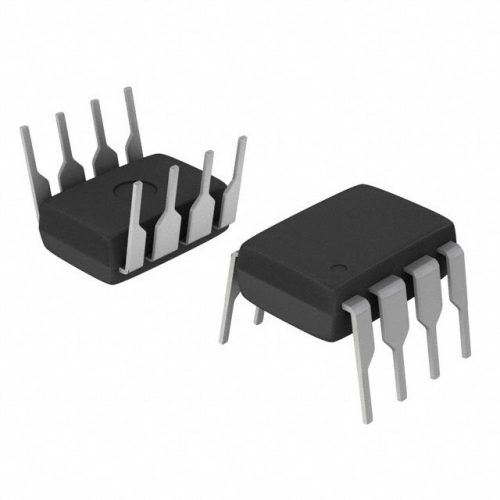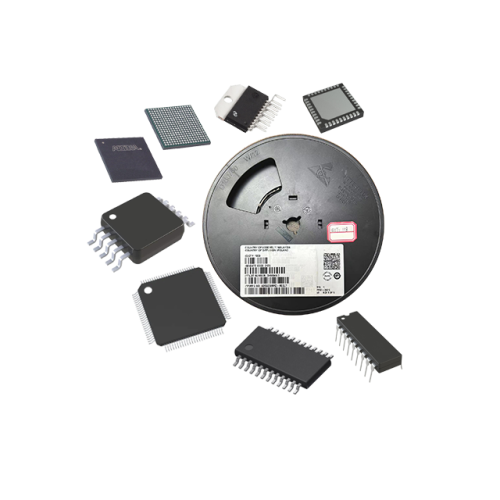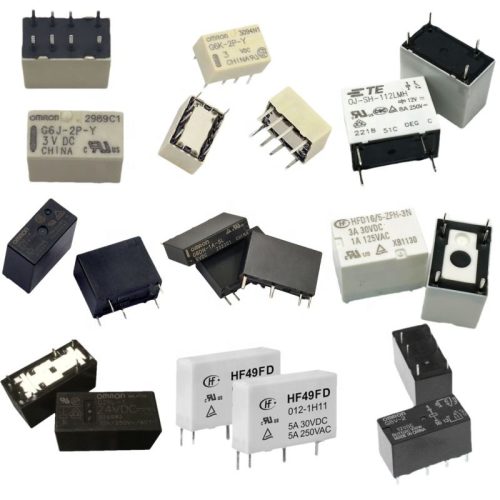LMV321IDCKR Ultra-Compact Low-Voltage Operational Amplifier Overview
The LMV321IDCKR from Texas Instruments is a high-performance single operational amplifier (op-amp) engineered for low-voltage, space-constrained applications. Part of TI??s LMV series, it combines ultra-low power consumption, a wide supply range, and a tiny form factor??making it ideal for battery-powered devices, IoT sensors, and portable electronics. Its ability to operate efficiently at low voltages while maintaining signal integrity has made it a preferred choice for engineers designing compact, energy-sensitive systems. الشركة المصنعة للدوائر المتكاملة offers this essential component as part of its portfolio of trusted analog semiconductors.
LMV321IDCKR Technical Parameters
| المعلمة | القيمة | الوحدة |
|---|---|---|
| الوظيفة | Single General-Purpose Operational Amplifier | |
| نطاق جهد الإمداد | 1.8 إلى 5.5 | V (single supply) |
| تيار التهدئة | 250 | ??A (typical, at 3V) |
| كسب منتج عرض النطاق الترددي | 1.0 | MHz (typical) |
| نوع الحزمة | SOT-23-5 (Small Outline Transistor, 5-pin) | |
| نطاق درجة حرارة التشغيل | -40 إلى +125 | ??C |
الخصائص الوظيفية الرئيسية
| الخصائص | المواصفات |
|---|---|
| جهد إزاحة المدخلات | 5.0 mV (maximum, at 3V) |
| تيار تحيز الإدخال | 1.0 pA (maximum, at 25??C) |
| Common-Mode Rejection Ratio (CMRR) | 60 dB (minimum) |
| معدل الدوران | 0.6 V/??s (typical) |
| تيار الإخراج | 20 mA (minimum, into 500?? load) |
Advantages Over Alternative Amplification Solutions
The LMV321IDCKR outperforms standard op-amps and larger alternatives, starting with its ultra-compact SOT-23-5 package (2.9mm??2.8mm)??60% smaller than DIP-8 op-amps. This makes it indispensable for space-constrained devices like smartwatches and wireless earbuds. “We reduced PCB area by 40% in our fitness trackers by switching to this tiny op-amp,” reports a senior engineer at a leading wearable tech manufacturer.
🔥 المنتجات الأكثر مبيعًا
With a 1.8V?C5.5V supply range, it operates seamlessly with common battery chemistries (Li-ion, AA/AAA) without voltage regulation??eliminating 2?C3 components versus op-amps requiring 3V+ minimum. Its 250??A quiescent current consumes 75% less power than general-purpose op-amps (1mA+), extending battery life in IoT sensors by up to 40%.
Unlike low-voltage op-amps with limited output current, its 20mA drive capability directly powers LEDs and small loads, reducing external components in indicator circuits. Its -40??C to +125??C temperature range also ensures reliability in harsh environments, from cold outdoor sensors to warm body-worn devices??outperforming commercial-grade op-amps limited to 0??C?C70??C.
🌟 المنتجات المميزة
Typical Applications of LMV321IDCKR
The LMV321IDCKR excels in low-voltage, compact systems. Key use cases include:
- Internet of Things (IoT) (wireless sensor nodes, battery-powered data loggers, smart home sensors)
- Consumer Electronics (wearable fitness trackers, wireless earbuds, portable media players)
- Medical Devices (portable blood glucose monitors, activity trackers, low-power patient monitors)
- Home Appliances (small kitchen gadgets, battery-operated thermostats, wireless remote controls)
- Industrial Automation (low-power sensor interfaces, portable test equipment, battery-backed controllers)
Texas Instruments?? Expertise in Analog Design
As a Texas Instruments product, the LMV321IDCKR leverages TI??s 80+ years of leadership in analog semiconductors. TI??s low-voltage op-amps undergo specialized testing??including power consumption analysis across voltage ranges and temperature extremes??to ensure consistent performance in battery-powered systems. This commitment to efficiency has made TI a trusted partner for brands like Apple, Fitbit, and Medtronic, who rely on components like the LMV321IDCKR for their portable and wearable devices.
📩 اتصل بنا
الأسئلة المتداولة (FAQ)
What is a single operational amplifier, and how does the LMV321IDCKR work?
A single op-amp is a standalone amplifier circuit designed to amplify weak analog signals. The LMV321IDCKR takes low-level signals from sensors (e.g., heart rate monitors, temperature sensors) and amplifies them to levels readable by microcontrollers. Its low-voltage design ensures compatibility with battery-powered devices, making it ideal for portable electronics.
Why is the 1.8V?C5.5V supply range important for battery-powered devices?
This range matches common battery outputs: 1.8V (low-drain Li-ion), 3V (coin cells), 3.3V (typical MCU voltage), and 5V (USB). Unlike op-amps requiring 3V+, it operates reliably as batteries discharge, avoiding sudden shutdowns. This flexibility eliminates voltage boost circuits, reducing power loss and component count in portable devices.
How does the SOT-23-5 package benefit compact designs?
The SOT-23-5??s tiny footprint (2.9mm??2.8mm) and thin profile (1.1mm) fit into space-constrained PCBs, such as those in smartwatches and wireless earbuds. Its 5-pin design minimizes routing complexity, while surface-mount compatibility supports automated assembly??critical for high-volume production of consumer wearables.
How does the 250??A quiescent current extend battery life?
Quiescent current is the power drawn when the op-amp is idle but powered. At 250??A, the LMV321IDCKR uses 75% less idle power than standard op-amps (1mA+). In battery-powered devices like IoT sensors (which spend most time idle), this reduces energy waste, extending battery life from months to over a year in some cases.
Is the LMV321IDCKR suitable for medical wearables?
Yes. Its low power consumption (250??A) and small size make it ideal for body-worn devices. The -40??C to +125??C temperature range withstands body heat and environmental variations, while its low input bias current (1.0 pA) ensures accurate amplification of weak biosignals (e.g., heart rate, blood oxygen) without distortion.






